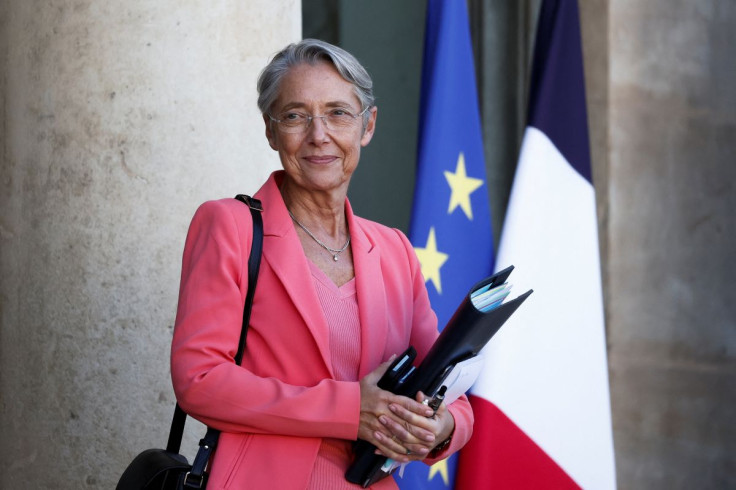French PM Sets Out Macron's Agenda, Opposition Flexes Its Muscles

French Prime Minister Elisabeth Borne urged the opposition to be open to building compromises as she set out her minority government's priorities on Wednesday, spelling out how she will try to navigate a new era of political uncertainty.
President Emmanuel Macron won a second term in April but his centrist alliance lost its absolute majority in legislative elections in June.
Without any pacts with other parties, Borne now faces the prospect of bill-by-bill negotiations in parliament and opted against a traditional, but potentially risky confidence vote after her policy speech.
"For too long, our political life has been made up of opposing blocs," Borne told lawmakers at the start of her policy speech. "The French are asking us to talk to each other more, to talk to each other better, and to build together."
In his first five-year presidential mandate, Macron had an absolute majority in parliament, which largely rubber stamped his plans.
Now, kicking off a speech that could last about an hour, Borne said she would be open to amending bill with proposals from the opposition.
She is expected to say how she intends to work with parliament and spell out upcoming proposals to address soaring costs of living - set to be announced later this week - or France's energy mix.
The speech is also an opportunity for the 61-year-old former civil servant, often criticised as too technocratic, to make her mark.
Government officials said they believed they could have narrowly won a confidence vote, but that would have meant counting on the far right abstaining, which would have been politically unpalatable.
"We could imagine the headlines: the government won thanks to the National Rally. We don't want to fall into this trap," a government source said.
Left-wing parties said the government's reluctance to hold a confidence vote - a first in 30 years - was undemocratic. They tabled a no-confidence motion, which will be voted on in the coming days.
This is much less risky for Borne. A no-confidence motion requires an absolute majority to precipitate a government's fall. Barring any major surprise, this will not happen after the conservative Les Republicains (LR) and the far-right Rassemblement National said they would not back it.
Nonetheless, the no-confidence motion allows the left-wing Nupes alliance to cast itself as the government's leading opponent. The conservatives and the far right both say they will play the role of a constructive, responsible opposition.
"It will clarify the political landscape and show who is in the majority and who is in the opposition," hard-left lawmaker Manuel Bompard told France Inter radio.
Those who do not back the no-confidence vote will be responsible for keeping Borne in power, he said.
LR lawmaker Aurelien Pradie responded on Franceinfo TV saying: "We're not a fruitless, stupid and nasty opposition, unlike others."
© Copyright Thomson Reuters 2024. All rights reserved.





















